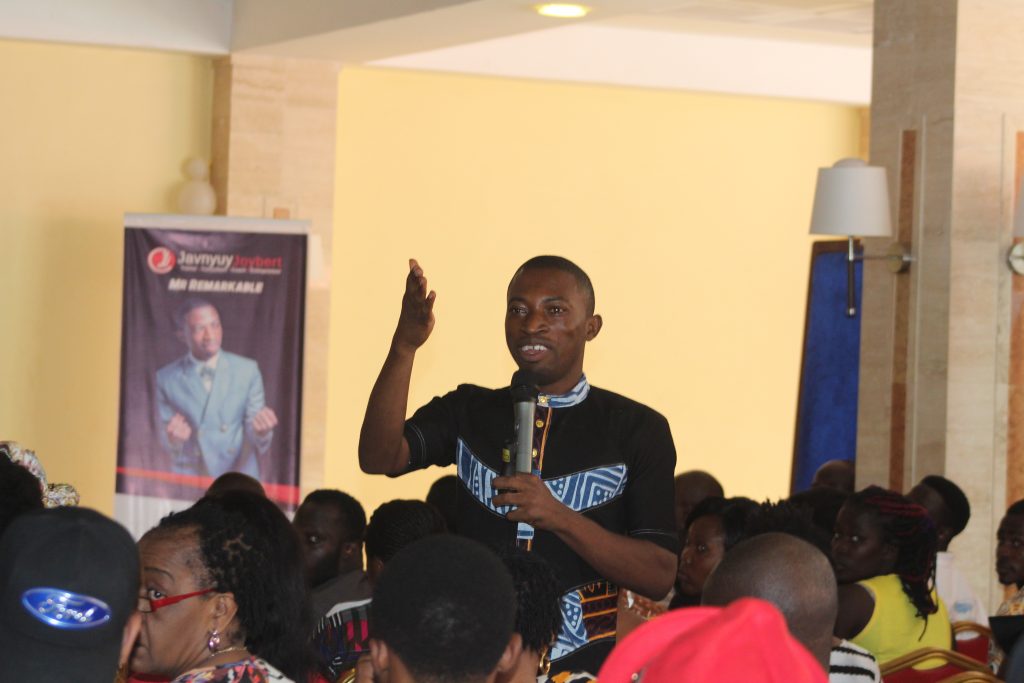I doubt if things will return to normal in the African market place after COVID-19. After this pandemic, we will be entering into a new marketplace. Education, healthcare, financial services and all other sectors are and will experience a shift after this crisis. There is already and will continue to be a serious disruption in workplace culture across Africa. COVID-19 has caused rapid digitization in key sectors across Africa in the last few weeks and the spread of new technologies are ushering in a new era of economic disruption.
Sometimes when I look at the African continent especially my country Cameroon, I feel we are not aware of what is coming regarding how the future workforce and marketplace will look like. The COVID-19 crisis is and will push Africans to be intentional at adopting new thinking, new solutions, new skills and new ways of doing business. Professionals and businesses should be worried about the impact the disruption by COVID-19 is causing and will cause for the next few weeks and months.
Now across the continent, from Cameroon to Nigeria to Kenya to Zimbabwe to Malawi, educational institutions who never took online education began to turn to virtual learning options to keep educating their students, churches and religious leaders using digital platforms to reach out to their followers, conference and workshop organizers depending on online conferencing platforms to run virtual events, mental health workers and counselors leveraging on digital platforms (telemedicine) to connect with those in need of their services, the high use of fintech solutions by even the common man is on the rise the way we buy and access financial services is changing, cybersecurity is and will be on the rise because the more people work from home there is high risk of cyber attacks among many others. These changes warrant the workforce that can execute these tasks effectively to achieve the desired results. New emerging technologies that are contradictory to our normal and traditional ways of living will continue to spring up during and after COVID-19. Are young professionals ready for this? Are companies and institutions across Africa ready for this?
Is it time for higher institutions across Africa to start restructuring their curriculum to fit the accelerate changes that COVID-19 is bringing? When it comes to basic digital and relevant workplace skills among graduated unemployed and even current employed the gap is alarming.
COVID-19 will transform and accelerate the future of work faster in Africa than we expected. With people and businesses forced to adopt new ways of thinking and getting things done especially through digital technology adoption, the requirement of new skills will soon be on the rise. Moreover, with the rise of high adoption of digital technologies as a result of COVID-19, more new jobs will be created. The big question now is “will our graduated unemployed have the required skills to be employable in this new marketplace that will be created post COVID-19?”
I will like to highlight that, the success of any business and professional in the African marketplace post COVID-19 depends on having the employees with the right essential skills that qualify them to be key players in the future workforce. What are the skills that qualify you to be part of the future workforce? According Accenture, “Leading businesses are reimagining the nature of work, pivoting their workforce to create new forms of value and scaling up “new skilling.”
Post COVID-19 work, workers, skillset and workplace will greatly change. Now is the time to start getting ready for the immediate future marketplace that await us (Serious business leaders and individual professionals should be seriously thinking how they will respond after the coronavirus crisis). Many will not see it coming but the changes will hit them hard and they will begin to wonder what is causing their businesses or careers to fail.

(Special Note: Follow Javnyuy Joybert on social media platforms and website www.javnyuyjoybert. Every day, Javnyuy actively engages his 27,000+ social media followers with incredible content on key areas like personal productivity, entrepreneurship & business growth, corporate effectiveness, skills development and future of work. Javnyuy is a frequent contributor to key web magazines like Afrohustler, Wundef among others)
Business leaders and institutions should be aware that succeeding in this digital age requires them to take on the disruptive forces changing their industry with speed, confidence and boldness. Moreover, this can only be achieved with the right workforce. That is why upskilling now will prepare the workforce to support and serve with continuous innovation and growth after COVID-19. According to the World Economic Forum research, findings contained in a report entitled “The Future of Jobs and Skills in Africa”, “Sub-Saharan Africa currently only captures 55% of its human capital potential. It could grow worst after COVID-19 if Africans are not intentional at acquiring the future skills that will make them active and key players in the marketplace. It is imperative now for individuals, private institutions and government to be intentional at building future skills.
Most of the people in Africa’s current labour force and university students do not possess the skills required for success in the upcoming marketplace post COVID-19. Whether we agree with it or we have a different opinion, the following skills will be the leading skills in the coming years. Due to COVID-19, we are already in the midst of transformative changes that are altering businesses and industries in very significant ways.
COVID-19 crisis forced institutions and employees to adopt virtual working culture and this is proof that it is time for current employees and young professionals who will still be entering the workforce to be digital playmakers. That is, professionals who lead digital adoption within their careers and institutions, always seeing new opportunities and possibilities with the emerging digital tools. Is time to start acquiring skills that will make you a valuable asset after the COVID-19 crisis.
According to research from CELBMD Africa, Future Foundation and Forbes, the following future skills are recommended.
1.Attention management, concentration and awareness: These skills are necessary to cope with information overload and to deal with the complex technical systems
2.Ecological mindset: Ability to perceive things with relations to the whole ecosystem.
3.Emotional intelligence: Most human jobs will require emotional input. Understanding of one’s own emotions, empathy and comparisons will allow to maintain personal balance in the complex world and to interact with others.
4.Cross-cultural skills: People from different cultures, subcultures and generations will be working at the same workplace. Finding the way to connect with them will be essential.

5.Digital literacy: The ability to work in the digital world (including AR and VR) is becoming as necessary as writing and reading. The 4th industrial revolution is fueled by technological innovations such as artificial intelligence, big data, virtual reality, blockchains, and more. This means that everyone will need a certain level of comfort around technology. At the most basic level, employees in most roles will be required to access data and determine how to act on it.
6.(Self-) Study skills: Lifelong learning is becoming an economic imperative in the fast changing world. Therefore, take on challenges, learn from mistakes and actively seek new knowledge.
7.Creativity: The demand for creativity will be rising at the majority of workplaces as more and more routine tasks will be automated
8.Analytical (critical) thinking: A person with critical thinking skills can suggest innovative solutions and ideas, solve complex problems using reasoning and logic and evaluate arguments.
9.Interpersonal communication skills: The ability to exchange information and meaning between people will be a vital skill during the 4th industrial revolution. This means people should hone their ability to communicate effectively with other human beings so that they are able to say the right things, using the right tone of voice and body language, in order to bring their messages across.
10.Embracing change: Due to the speed of change in the future workplace, people will have to be agile and able to embrace and celebrate change. Not only will our brains need to be flexible, but we will also need to be adaptable, as we are required to adjust to shifting workplaces, expectations, and skill-sets.
Get ready for the future head on
Javnyuy Joybert
Youth/Employee Skills Development Consultant & Trainer
Founder, The Center for Entrepreneurship, Leadership & Business Management Development (CELBMD) Africa – www.celbmdafrica.com
Email: infos@celbmdafrica.com and javnyuy@cosdefgroup.com
Every day, Javnyuy actively engages his 27,000+ social media followers with incredible content on key areas like personal productivity, entrepreneurship & business growth, corporate effectiveness, skills development and future of work. Javnyuy is a frequent contributor to key web magazines like Afrohustler, Wundef among others

Thank you very much
Thank you for reading and leaving a comment. Keep visiting and sharing. Regards
Thank you for sharing this.
Thank you for reading and leaving a comment. Keep visiting and sharing. Regards
In my own point of view, this pandemic Corona has served as a motivation with evolutionary effect. The Impact is felt on a multidimensional scale affecting social, governmental, religious and international values. It’s indeed warrants a questioning of how the future will look like…. thanks for the package so far.
Absolutely right Pierre